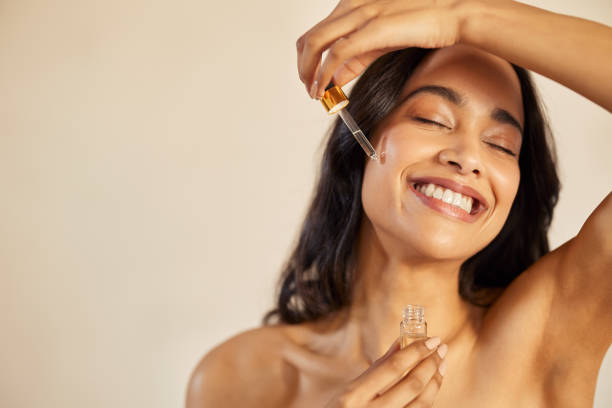It is common knowledge that managing acne can be frustrating and sometimes even distressing. Although there are countless products in the market promising a quick fix, many individuals still turn to natural remedies for a gentler approach. Read this article to the end as we explore the effectiveness of various natural remedies for acne and separate the myths from the science-backed solutions.
1. Tea Tree Oil
What Works: Tea tree oil is well-known for its antimicrobial properties. Studies have shown that it can effectively combat the bacteria associated with acne, reducing inflammation and preventing further breakouts.
What Doesn\’t Work: Although it\’s potent, undiluted tea tree oil can be very harsh on the skin and cause irritation. Always dilute it with a carrier oil before use.
2. Honey and Cinnamon Masks
What Works: Honey has natural antibacterial properties, while cinnamon contains antioxidants. Together, they can create a powerful mask to reduce inflammation and fight acne-causing bacteria.
What Doesn\’t Work: Even though this mask can be beneficial, it might not work for everyone. Some individuals may be allergic to honey or sensitive to cinnamon.
3. Aloe Vera
What Works: Aloe Vera is known for its soothing properties and can help reduce redness and inflammation associated with acne. It also provides hydration without clogging pores.
What Doesn\’t Work: Aloe Vera is generally safe but it might not be a complete solution for severe or cystic acne. It\’s best used in conjunction with other remedies.
4. Apple Cider Vinegar
What Works: Apple cider vinegar contains acetic acid, which can help you kill bacteria and remove excess oil from your skin. It also balances the skin\’s pH levels.
What Doesn\’t Work: Using undiluted apple cider vinegar can be too harsh and lead to irritation. It\’s very important to dilute it properly and perform a patch test.
5. Green Tea Extract
What Works: Green tea is rich in antioxidants, particularly epigallocatechin-3-gallate (EGCG), which has anti-inflammatory and antimicrobial properties. Applying green tea extract or drinking green tea may help with acne.
What Doesn\’t Work: Green tea may not provide rapid results for severe cases of acne.
6. Zinc Supplements
What Works: Zinc is an essential mineral that helps regulate oil production and supports immune function. Studies have shown that zinc supplements can help reduce acne.
What Doesn\’t Work: Zinc supplements should be taken under the guidance of a healthcare professional to prevent overdosing.
7. Probiotics
What Works: Probiotics promote healthy gut bacteria, which can indirectly benefit the skin by reducing inflammation. Some studies suggest they can help improve acne.
What Doesn\’t Work: Probiotics may not provide immediate relief, and their effectiveness can vary from person to person.
Below are a few other natural remedies that are widely used by individuals but aren\’t exactly effective;
Toothpaste: There\’s a common misconception that applying toothpaste to pimples or acne can help dry them out and reduce their size. However, toothpaste may contain harsh ingredients that can irritate the skin, leading to more significant problems. It\’s best to avoid using toothpaste as an acne remedy.
Baking Soda: Baking soda is often suggested as a DIY exfoliant for acne. However, it can disrupt the skin\’s natural pH balance and lead to dryness and irritation. It\’s advisable to choose gentler exfoliants specifically formulated for skincare.
Lemon Juice: Lemon juice is acidic and can be harsh on the skin when used undiluted. Applying lemon juice to acne lesions may cause irritation and worsen the condition. If you want to incorporate citrus into your skincare routine, consider using a properly formulated product.
Conclusion
Natural remedies can be a valuable addition to your acne-fighting routine. However, it\’s important to remember that results may vary from person to person. If you\’re struggling with persistent or severe acne, I recommend consulting a dermatologist for personalized advice and treatment options. Complete our contact form to get started.
Remember to be patient and consistent with any natural remedy you try. You must always perform a patch test and consult a healthcare professional, especially if you have allergies or existing skin conditions. With the right approach, natural remedies can play a significant role in achieving clearer, healthier skin.

